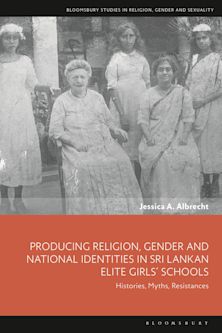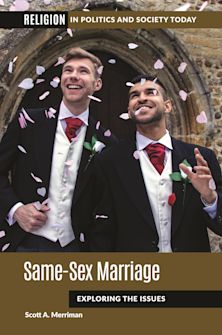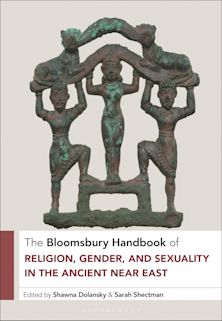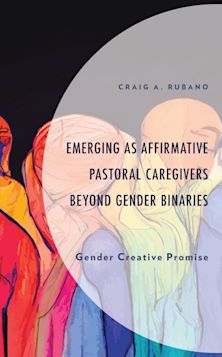- Home
- ACADEMIC
- Religious Studies
- Religion, Gender and Sexuality
- Women and Religion in Zimbabwe
Women and Religion in Zimbabwe
Strides and Struggles
Ezra Chitando (Anthology Editor) , Sophia Chirongoma (Anthology Editor) , Kudzai Biri (Anthology Editor) , Ezra Chitando (Contributor) , Kudzai Biri (Contributor) , Sophia Chirongoma (Contributor) , Macloud Sipeyiye (Contributor) , Elias G. Konyana (Contributor) , Tracey Chirara (Contributor) , Dudzirai Chimeri (Contributor) , Tabona Shoko (Contributor) , Mavis Muguti (Contributor) , Tawanda Mbewe (Contributor) , Martin Mujinga (Contributor) , Lindah Tsara (Contributor) , Simbarashe Munamati (Contributor) , Francis Machingura (Contributor) , Joyline Gwara (Contributor) , Menard Musendekwa (Contributor) , Isheanesu Sextus Gusha (Contributor) , Chipo Mable Hatendi (Contributor) , Tapiwa Praise Mapuranga (Contributor) , Tariro Zhou (Contributor) , Barbara C. Manyarara (Contributor) , Kevin Shijja Kuhumba (Contributor) , Kudakwashe Bryson Kabaira (Contributor) , Blessed Simbarashe Matsita (Contributor) , Christine Nakyeyune (Contributor)
Women and Religion in Zimbabwe
Strides and Struggles
Ezra Chitando (Anthology Editor) , Sophia Chirongoma (Anthology Editor) , Kudzai Biri (Anthology Editor) , Ezra Chitando (Contributor) , Kudzai Biri (Contributor) , Sophia Chirongoma (Contributor) , Macloud Sipeyiye (Contributor) , Elias G. Konyana (Contributor) , Tracey Chirara (Contributor) , Dudzirai Chimeri (Contributor) , Tabona Shoko (Contributor) , Mavis Muguti (Contributor) , Tawanda Mbewe (Contributor) , Martin Mujinga (Contributor) , Lindah Tsara (Contributor) , Simbarashe Munamati (Contributor) , Francis Machingura (Contributor) , Joyline Gwara (Contributor) , Menard Musendekwa (Contributor) , Isheanesu Sextus Gusha (Contributor) , Chipo Mable Hatendi (Contributor) , Tapiwa Praise Mapuranga (Contributor) , Tariro Zhou (Contributor) , Barbara C. Manyarara (Contributor) , Kevin Shijja Kuhumba (Contributor) , Kudakwashe Bryson Kabaira (Contributor) , Blessed Simbarashe Matsita (Contributor) , Christine Nakyeyune (Contributor)
You must sign in to add this item to your wishlist. Please sign in or create an account
Description
The chapters in this volume foreground the ambivalent role of religion and culture when it comes to African women’s health and well-being. Reflecting on the three major religions in Africa, i.e. African Indigenous Religions, Christianity, and Islam, the authors illustrate how religious beliefs and practices can either enhance or hinder women’s holistic progress and development. With a specific focus on Zimbabwean women’s experiences of religion and culture, the volume discusses how African Indigenous Religions, Christianity, and Islam tend to privilege men and understate the value of women in Africa. Adopting diverse theological, ideological, and political positions, contributors to this volume restate the fact that the key teachings of different religions, often suppressed due to patriarchal influences, are a potent resource in the quest for gender justice. In sync with the goals for gender justice and women empowerment envisioned in the United Nations’ Agenda 2030 and Africa Agenda 2063, the contributors advocate for gender-inclusive and life-enhancing interpretations of religious and cultural traditions in Africa.
Table of Contents
Ezra Chitando, Sophia Chirongoma, and Kudzai Biri
Chapter One
Harnessing Ndau Religious and Socio-Cultural Beliefs and Practices for Celebrating Women Power in Zimbabwe
Macloud Sipeyiye &Elias G. Konyana
Chapter Two
Rural Women Utilizing African Indigenous Religion(s) in Environmental Conservation: A Case of Mutasa Area in Mutare
Tracey Chirara
Chapter Three
Reconfiguring Lost African Religious Tradition: A Feminist Inquiry into Pre-colonial Gender Construction and Its Impact on Shona Society in Post-colonial Zimbabwe
Dudzirai Chimeri
Chapter Four
African Traditional Religious Women and Reproductive Health: The Case of Mutasa Rural in Mutare
Tracey Chirara & Tabona Shoko
Chapter Five
Woman thou art Cursed? The Case of SARE in Shona Culture
Mavis Muguti & Tawanda Mbewe
Chapter Six
Imagining a Church with Equal Opportunities among the Clergy: A Theological and Cultural Dilemma in the Methodist Church in Zimbabwe
Mart
Product details
| Published | Jul 07 2022 |
|---|---|
| Format | Ebook (PDF) |
| Edition | 1st |
| Extent | 1 |
| ISBN | 9781978785519 |
| Imprint | Lexington Books |
| Illustrations | 1 b/w photos; 3 tables; |
| Publisher | Bloomsbury Publishing |
About the contributors
Reviews
-
A comprehensive contextualized and contemporary resource on women’s experiences and status in African Indigenous Religions, Christianity, and Islam cleverly nuanced with the role of men in Zimbabwe. It is a must-read for all researchers and anyone interested in religion and the wellbeing of women and men in African contexts and beyond.
Loreen Maseno, Maseno University
-
This book makes a significant contribution to the study of religion as a force on the role and place of women in society. It clearly shows that the subject is for the community not for one gender as the authors highlight the positives that have been made and the challenges that are still faced by women in the society. The fact that the study focuses on a particular context makes this book more fascinating because it has depth of critical analysis. This book conceptualizes the current relevance of the study of religion, and it is an important resource for all those who teach gender and religion in different institutions.
Esther Mombo, St. Paul's University

ONLINE RESOURCES
Bloomsbury Collections
This book is available on Bloomsbury Collections where your library has access.



































